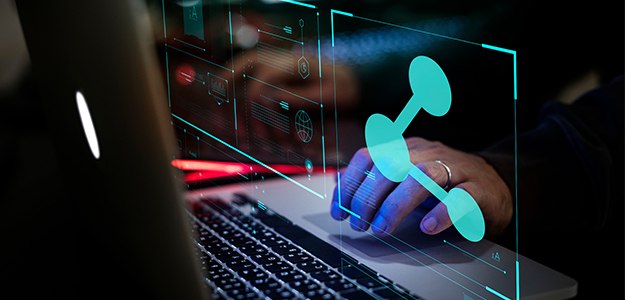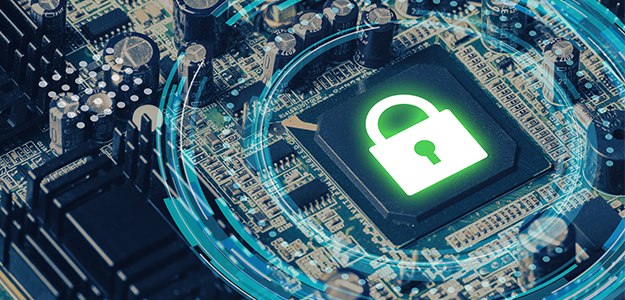The initial idea behind virtual private networks was to allow employees of large companies to work remotely yet securely. So, they had to be safe. Now, when VPNs are more common and more people use them to protect their private data, the services haven’t become any less secure.
The best providers use the most up-to-date methods to prevent all types of hacking attacks. That includes bank-grade encryption of all the traffic which passes through VPN’s tunnel. Even though you still use the Internet via your ISP’s connection, encryption makes it impossible to spy on your browsing activities or steal your data.
However, if you prefer to use a free VPN be aware that it needs to make money somehow. For example, by selling your personal information to advertisers. Therefore, it is preferable to use a reputable paid service not to sweat over your safety every time you go online.
What Makes a VPN Secure?
The question of how secure VPNs are is being broadly discussed among representatives of the IT industry. The services differ, and each provider has its peculiarities. But there are two main factors which influence the level of security every single VPN offers. They are:
- The type of technology a provider is using (encryption and protocols).
- Regulations each country imposes on VPNs and online activities in general. That means the legislation of the country where a VPN is headquartered (jurisdiction) and where it has its servers.
Let’s cover those briefly.
Encryption and Protocols

VPN providers use different protocols to secure their users’ data. Some of them are stronger and more reliable, some affect speeds, some are not compatible with all platforms. Below is the basic description of the main protocols used by VPNs.
OpenVPN. This protocol provides the best security level to devices running on all known platforms. No wonder, many VPNs offer it by default. To secure connection, OpenVPN uses keys known to two parties on both ends of transmission only. It is an open source project which means developers from all over the world can upgrade it based on the latest IT developments.
IKEv2 (Internet Key Exchange, Version 2). Being a product of Microsoft and Cisco, this is one of the most secure protocols known. If used with AES cipher, it will guarantee you are 100% protected. However, it is difficult to apply the protocol to VPN servers, so not all VPNs use it.
SSTP (Secure Socket Tunneling Protocol). That is another security solution from Microsoft. The connection is encrypted with SSL/TLS cipher. The coded data is distributed between the two parties involved in the connection and they are the only ones who can decode it.
PPTP (Point-To-Point Tunneling Protocol). Being one of the oldest protocols, PPTP is not as secure as the ones we’ve described above. Its main advantages are limited – it can be easily set up and it works on old machines. That’s it. Even if you decide to use this protocol, make sure the VPN provider has more options to choose from.
L2TP/IPsec (Layer 2 Tunneling Protocol). This protocol is an extension of PPTP. It uses security keys on each side of your data tunnel which sounds good. However, the protocol is not as secure as some of those we have described above. It also makes your connection slow.
Note that most of the time, a VPN sets a certain protocol by default and you may need to change the settings depending on your likes and needs.
Also, your device may not allow using some of these protocols. For example, if you are an owner of an Apple device, some limitations may apply. Same is true for Android. So, before sticking to a certain VPN make sure your device is compatible with protocols the provider uses.
VPN Encryption
Now it’s time to say a few words about encryption. Most likely, you have already understood that encryption is a method to change the way your data looks. Once data enters the tunnel, it becomes encrypted and nobody, including your ISP, can read or use it in any way.
That is the basics yet not all as the technology is much more complicated. However, you don’t need to be a tech geek to use encryption. Simply choose providers which use at least AES-128 cipher. Meanwhile, the majority of reputable VPNs prefer AES-256 encryption which is also used in military and banks. Good sign it provides a high-security level.
VPN Jurisdiction

Even though reputable VPNs will utilize the best technology to protect your privacy, they still must obey the legislation of countries where they are located. It may mean giving out their users’ data in court, for example. That is why some reviewers tend to put VPNs’ jurisdiction into the lists of either pros or cons.
Besides, a company might be obliged to share users’ information because of international agreements between different countries. So, it won’t hurt to find out whether your VPN provider is located in a state which has signed such agreements.
Best VPNs for Android to stay anonymous
The VPN offers you accessibility to the complete sites and applications even if they’re banned in your nation. It’s ideal if you’re able to afford to cover your VPN for iPhone. Best VPN for Android and iPhone has an exceptional means of pricing.
A VPN isn’t necessary but take a peek at the advantage of employing a VPN with your Android device and we think you are going to be convinced that it’s something that you ought to be embracing. Also not just for individual privacy concerns nonetheless VPN can certainly enable you to receive around firewall including a number of clogged sites which will be restricted within your region. Deciding on the very best VPN for Android isn’t a simple matter to do.
VPN is among the very best approach to guard your privacy and security when browsing internet. Setting up VPN on Android definitely appears to be an excellent idea. IPVanish VPN intended for Android is a wonderful VPN application that provides you the collection of using one of over 500 personal VPN servers throughout the planet.
A VPN will encrypt whatever you do on the internet through your Android device and your individual data will be hidden from prying eyes. VPN offers you that security when you’re doing a transaction or employing a public WiFi network. If it comes to pick the Best VPN for Kodi, we have to think about unique things.
How to Stay Anonymous Using a VPN?
One of the reasons to start using a VPN is to protect your anonymity. And there are three ways for providers to guarantee no one finds out where you are and what you are doing online.
No-logs policy. VPNs claim they don’t keep users’ logs and thus, have nothing to share with ISPs or governmental bodies. But many of them to keep some data. It can be your email address, the time you used the connection, bandwidth, and more. In fact, there were cases when VPN providers were able to help surveillance bodies. So, make sure you read the privacy policy.
Payment anonymity. Usually, VPNs allow different payment methods but not all of them can guarantee anonymity. If you don’t want the provider to know your name or contacts, consider paying with cryptocurrencies or via PayPal and prepaid debit cards.
Shared IP address. The best way for VPNs to protect your anonymity while using the service is through a shared IP address. It means that many users from various locations have the same IP address which makes it impossible to track anyone in particular. What a perfect way to stay private!


